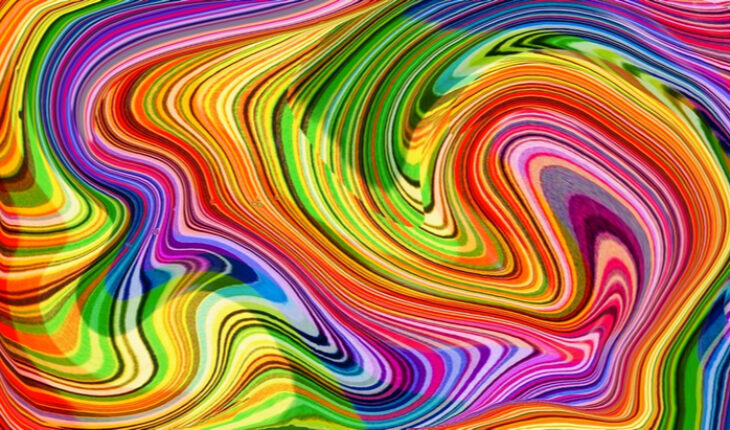Glastonbury Festival: Expert issues warning about the dangers of mixing drugs: last year it was reported that the river that runs through Glastonbury Festival was contaminated with illicit drugs such as cocaine and ecstasy. And so, as the popular music festival starts this week, experts at Private Rehab Clinic Delamere have warned of the long and short term effects of mixing MDMA and cocaine, and why it should be avoided.
What is Cocaine and Why is it Dangerous?
Cocaine is a white powder stimulant drug, that when taken can make an individual feel extremely excitable, confident, happy and more likely to take risks.
However, taking even a single dose of cocaine comes with serious risks to your health. The drugs can make users experience a faster heart rate, raised body temperature and the need to vomit or make frequent visits to the toilet.
What is MDMA and Why is it Dangerous?
MDMA is a type of methamphetamine drug and is most often seen as a brownish white powder, but can also appear in the form of a rock or a pill.
MDMA can cause more than a few adverse health effects. Some of the symptoms can include high blood pressure, fainting, panic attacks and even brief losses of consciousness or seizures.
What Can Happen When These Drugs Are Mixed?
Mixing both cocaine and MDMA together, can more than double your chances of suffering a drug-related death and presents a large number of associated risks.
Both cocaine and MDMA have stimulant qualities and produce a very pronounced euphoric high, although the effects of cocaine are usually short-lived, whereas the effects of MDMA can last much longer – up to six hours.
This is especially dangerous as users mixing both drugs can feel tempted to increase the amount of cocaine they are taking to top up the effects of the MDMA, which only furthers the risks of harm.
However once the effects of the MDMA are in full flow, they can completely override the sensations caused by cocaine, meaning that any attempt by a drug user to achieve the ‘ultimate’ high, will instead put themselves at a dramatically increased risk of harm.
What Are the Short Term Effects?
Mixing cocaine with any drug, or with alcohol, can lead to potentially disastrous consequences in both the short and long term.
Short term side effects include:
Heart problems: Both MDMA and cocaine are powerful stimulants and mixing them together can cause an increased risk of a heart attack, especially among those who have pre-existing heart conditions.
Impaired decision making: Mixing cocaine and MDMA can lead to significantly impaired decision making and judgement. The hallucinogenic properties of MDMA paired with compulsiveness caused by cocaine means that an individual who is mixing both is more at risk of suffering an accident, self-harming or finding themselves in a risky situation.
Anxiety, depression and paranoia: Using cocaine and MDMA at the same time, can cause users to have a nasty and extended ‘comedown’ experience as the drugs wear off. Symptoms of this ‘comedown’ state include severe depression, anxiety, paranoia, sleep disturbances, and even suicidal thoughts in some extreme cases.
What Are the Long Term Effects?
There are also long term health implications to consider. Even if you do not suffer any immediate adverse effects from drug use, the additional build-up of toxins can only be considered a greater risk to your mental and physical health in the long run.
Long term effects can include:
Liver damage: Mixing cocaine and MDMA can put you at risk of liver damage and liver disease. In some cases, even once the effect of the drugs have stopped, the damage done to the liver can be irreversible.
Brain damage: Using both drugs together, may also put you at risk of brain damage since repeatedly taking and mixing these drugs destroys brain cells and tissue. This can result in reduced cognitive function and memory impairment.
Kidney damage: The overheating effects of both substances can increase the risk of long term kidney damage. A frequent user can sustain serious kidney damage as a result of hyperthermia and repeat dehydration.
Dual addiction to both drugs: Using both cocaine and MDMA increases the risk of developing a dual addiction to both substances, since using them side by side floods the brain with rewarding chemicals, which puts users at higher risk of becoming dependent on the drugs.
Anxiety and depression: Long term risks of mental health issues such as depression and generalised anxiety disorder (GAD) may require ongoing medical and/or therapeutic treatment.
Risk of using other harmful substances: Since both MDMA and cocaine are stimulants with very unpleasant withdrawal symptoms, a frequent user is naturally more at risk of using or becoming dependent on other harmful substances to counteract the effects of the two combined drugs.
What Treatments Are Available?
If you believe that you or someone you know is abusing substances like cocaine and MDMA and are finding it difficult to stop, then it is vital that you seek professional drug addiction treatment. Medical advice and professional help can be sought out with your local GP, as well as on trusted online resources and at rehab facilities.
To help diminish and safely control the withdrawal symptoms of cocaine mixed with MDMA, a full medical inpatient detox is recommended as the most effective course of treatment.
Following on from any drug detox, a comprehensive drug rehabilitation programme should be taken to help the individual recover, heal and grow.
- New lipid-based pathway discovered as key to memory formation - 25th June 2025
- Crucial link could explain how Alzheimer’s takes hold - 25th June 2025
- Understanding Your Mind Can Improve Daily Life - 25th June 2025








Anyone who takes advice from a private rehab clinic is bonkers. There is no more corrupt and self-serving industry.